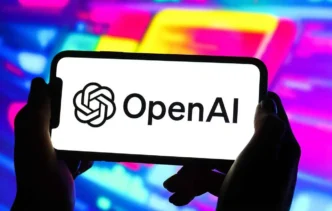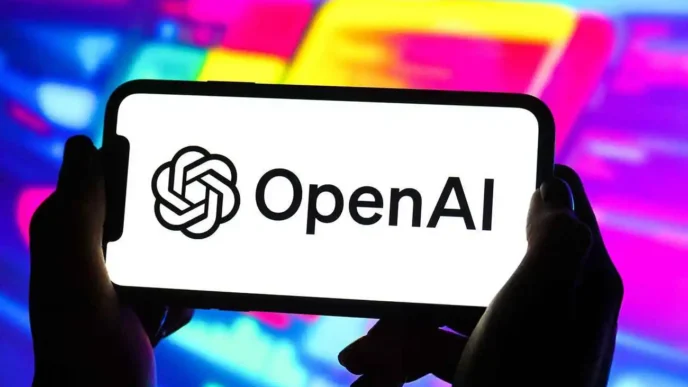OpenAI’s decision to allow companies to customize its most powerful AI models represents a significant shift in how artificial intelligence (AI) can be deployed and integrated into various business applications. This move promises to unlock new potential for companies across different industries by providing them with the tools to tailor AI models to their specific needs. In this in-depth analysis, we will explore the implications, benefits, and challenges of this development, as well as the potential impacts on the AI landscape and various industries.
1. Overview of OpenAI’s Move
OpenAI has consistently been at the forefront of AI research and development, producing some of the most advanced models in the field. With the release of its most powerful models, the company has made a strategic decision to allow businesses to customize these models. This customization can include fine-tuning the models on specific datasets, adjusting their behavior to align with company goals, or integrating them with proprietary systems.
A. Key Features of Customization
- Fine-Tuning Capabilities: Companies can refine the model’s performance by training it on their own datasets. This ensures that the model is better suited to the specific language, terminology, and context relevant to their industry.
- Behavioral Adjustments: Businesses can adjust how the model responds to queries, tailor its tone, and modify its behavior to align with their brand voice or operational requirements.
- Integration Options: Custom models can be integrated with existing business systems and workflows, such as customer relationship management (CRM) systems, enterprise resource planning (ERP) software, or specific industry applications.
- Security and Privacy: Enhanced control over data privacy and security is a significant aspect, as companies can ensure that sensitive information is managed according to their specific requirements.
2. Benefits for Businesses
The ability to customize OpenAI’s powerful models offers several advantages for businesses across various sectors:
A. Improved Relevance and Accuracy
- Tailored Responses: Customizing a model allows businesses to train it on their unique datasets, leading to more accurate and contextually relevant responses. For instance, a healthcare provider can fine-tune the model to understand medical terminology and patient interactions better.
- Enhanced Performance: By focusing the model on industry-specific data, businesses can achieve higher accuracy in tasks such as customer support, content generation, or data analysis.
B. Brand Alignment
- Consistent Brand Voice: Custom models can be adjusted to reflect a company’s brand voice and communication style. This ensures that customer interactions maintain consistency and align with the company’s image.
- Personalized User Experiences: Companies can create more personalized and engaging user experiences by tailoring the model’s responses and interactions to fit their audience’s preferences.
C. Operational Efficiency
- Automation of Routine Tasks: Customized models can automate a range of tasks, from customer service inquiries to data entry, freeing up human resources for more complex and strategic activities.
- Integration with Existing Systems: Businesses can integrate AI models with their current systems, enhancing operational efficiency and streamlining workflows.
D. Competitive Advantage
- Differentiation: Companies that leverage customized AI models can gain a competitive edge by offering unique features and services that set them apart from competitors.
- Innovation: Access to advanced AI capabilities can drive innovation, enabling businesses to explore new applications and solutions that were previously not possible.
3. Challenges and Considerations
The ability to customize OpenAI’s powerful models offers several advantages for businesses across various sectors:
A. Technical Complexity
- Implementation Challenges: Customizing and integrating AI models requires technical expertise. Businesses may need to invest in specialized skills or partner with AI experts to achieve their goals.
- Data Management: Companies must ensure that their datasets are clean, relevant, and representative. Poor quality data can lead to suboptimal model performance.
B. Costs
- Financial Investment: Customizing advanced AI models can be expensive. Costs may include licensing fees, implementation expenses, and ongoing maintenance.
- Resource Allocation: Businesses need to allocate resources for training, integration, and support, which can be significant depending on the scale of the customization.
C. Ethical and Regulatory Concerns
- Bias and Fairness: Customized models can inadvertently perpetuate biases present in the training data. Companies must be vigilant in addressing and mitigating these biases.
- Data Privacy: Handling sensitive data requires stringent privacy measures. Businesses must ensure compliance with data protection regulations, such as GDPR or CCPA.
- Transparency and Accountability: Ensuring that AI models operate transparently and that their decisions can be explained is crucial for maintaining trust and accountability.
4. Impact on the AI Ecosystem
The ability for companies to customize OpenAI’s most powerful models will likely have several implications for the broader AI ecosystem:
A. Expansion of AI Applications
- Industry-Specific Solutions: Customization will lead to the development of more industry-specific AI solutions, addressing unique challenges and needs across sectors like healthcare, finance, retail, and more.
- New Business Models: Businesses may develop new models and services based on customized AI capabilities, leading to innovation and disruption in various markets.
B. Increased Competition and Collaboration
- Competitive Landscape: As more companies adopt customized AI models, competition will intensify. Businesses will need to differentiate themselves through innovation and effective use of AI.
- Partnerships and Collaborations: Companies may seek partnerships with AI developers, consultants, and other organizations to leverage their expertise in customizing and integrating AI models.
C. Accelerated AI Adoption
- Mainstream Integration: Customizable AI models will facilitate the integration of AI into a wider range of business processes and applications, accelerating the overall adoption of AI technologies.
- Improved Accessibility: By providing tools for customization, OpenAI is making advanced AI more accessible to businesses of all sizes, potentially democratizing access to cutting-edge technology.
5. Case Studies and Examples
To illustrate the practical applications and benefits of customizing AI models, let’s examine a few hypothetical case studies:
A. Healthcare Provider
A large healthcare provider customizes an OpenAI model to handle patient inquiries and provide medical information. By training the model on medical literature and patient interaction data, the provider improves the accuracy of responses and enhances the patient experience. Integration with the hospital’s electronic health records (EHR) system allows the AI to offer personalized advice based on patient history.
B. Financial Services Firm
A financial services firm customizes an AI model to assist with customer service and financial advice. The model is fine-tuned with financial terminology and regulatory guidelines, enabling it to handle complex queries related to investments, loans, and account management. The integration with the firm’s CRM system enhances customer interactions and streamlines support processes.
C. E-Commerce Company
An e-commerce company customizes an AI model to manage product recommendations and customer support. By training the model on product data, customer reviews, and sales trends, the company improves the relevance of product recommendations and enhances the efficiency of customer support operations. The AI’s ability to understand customer preferences leads to increased sales and customer satisfaction.
6. Future Directions and Developments
Looking ahead, the customization of AI models is likely to evolve in several ways:
A. Enhanced Customization Tools
- User-Friendly Interfaces: Future developments may include more intuitive tools and interfaces for customizing AI models, making it easier for businesses to tailor models to their needs without requiring extensive technical expertise.
- Automated Customization: Advances in automation may allow for more streamlined customization processes, reducing the time and effort required to train and integrate AI models.
B. Broader Adoption and Innovation
- Industry-Specific Solutions: As more industries adopt customized AI models, we can expect to see a surge in innovative applications and solutions tailored to specific industry needs.
- Collaboration and Ecosystem Growth: The growth of the AI customization ecosystem will foster collaboration between AI developers, businesses, and research institutions, leading to new advancements and opportunities.
C. Ethical and Regulatory Evolution
- Standards and Guidelines: The development of standards and guidelines for AI customization will be essential for addressing ethical and regulatory concerns, ensuring that customized models are used responsibly and transparently.
- Continuous Improvement: Ongoing research and development will focus on improving the fairness, transparency, and accountability of customized AI models, addressing challenges related to bias and data privacy.
OpenAI’s decision to allow companies to customize its most powerful AI models marks a significant milestone in the evolution of artificial intelligence. This development opens up new possibilities for businesses, offering enhanced relevance, improved performance, and tailored solutions. While there are challenges associated with customization, including technical complexity, costs, and ethical considerations, the potential benefits are substantial. As businesses across various sectors embrace customized AI models, we can anticipate a wave of innovation, increased competition, and broader adoption of AI technologies. The future of AI customization holds great promise, driving advancements and shaping the way businesses interact with technology and their customers.















